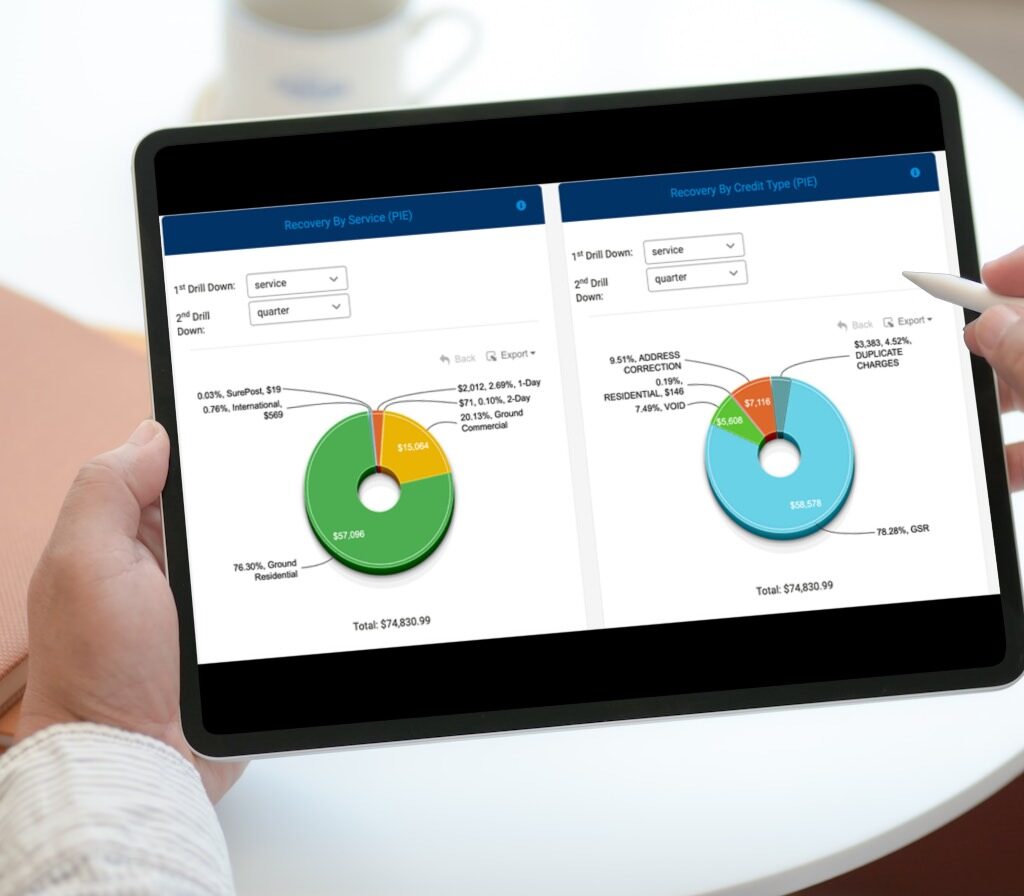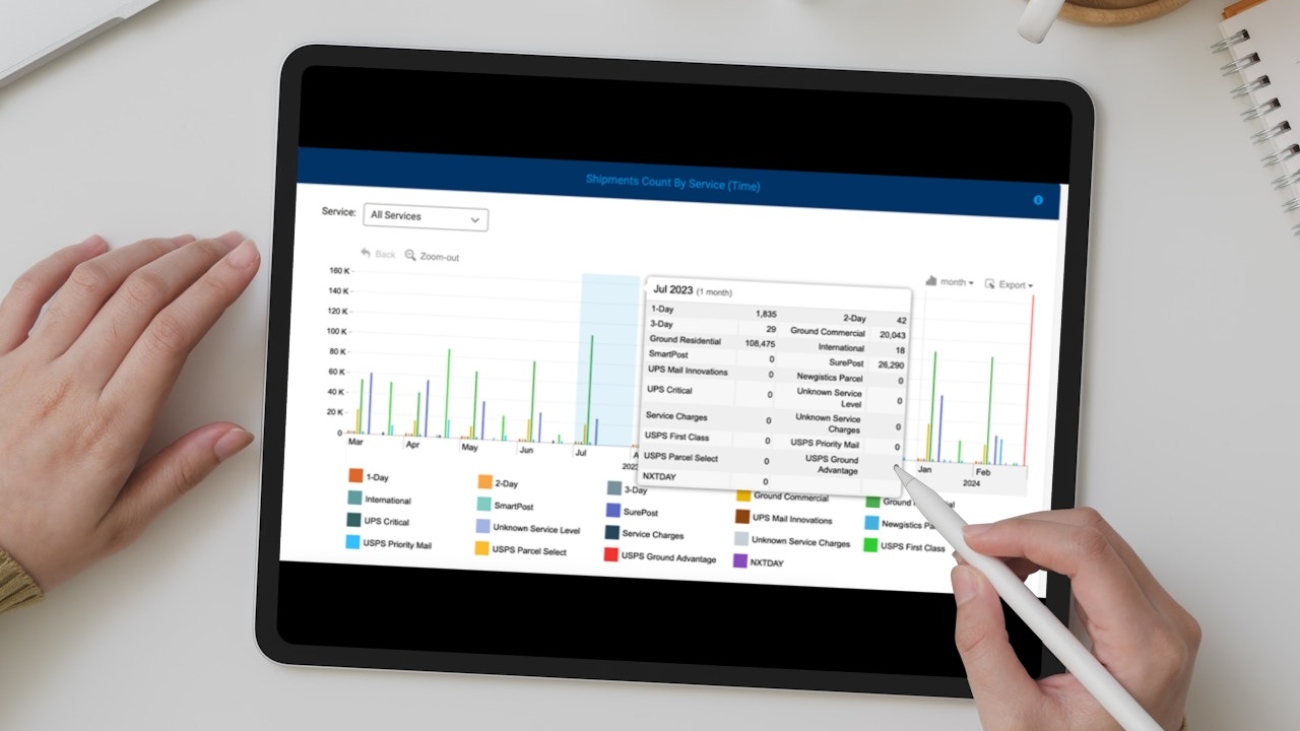Audintel’s team was excited to be a part of the convention at Manifest 2024 in Vegas. We had a chance to interact with global innovators, executives, investors, service providers of logistics tech, and supply chains. It was a great opportunity to network with the leaders of Fortune 500 companies. The recurring theme throughout the convention was Artificial Intelligence (AI) and Machine Learning (ML) transforming the Logistics industry.
It was a very knowledgeable three days of the conference. Here are some topics covered.
- AI is redefining the Logistics industry.
The latest statistics say that the Artificial Intelligence (AI) market size will grow to almost 740 billion US dollars by 2030. The role of AI is very prominent in the transportation sector. The logistics industry includes supply chain management needing automation for seamless operations. According to McKinsey, AI and digitalization will enable an end-to-end approach to supply chain optimization.
At Manifest, speakers from DHL and Flexport touched on AI empowering supply chain decisions. In addition, we heard from top leaders in the supply chain industry about the impact of AI and automation on the workforce and customers. There were discussions on navigating global turmoil and disruptions with data analytics and innovative solutions.
Moreover, automated warehouses are using AI and robotics to optimize shipping processes. Also, Inventory disruptions and their management are necessary for logistics. Agile and responsive supply chains are keeping pace with customer expectations.
- Role of AI in the shipping industry
AI and ML are benefitting the shipping industry by predicting faster and more cost-effective shipping routes. An esteemed group of technology leaders talked about technology involvement in cross-border shipping. Further, Transportation Management Spend (TMS) software provides data visibility to shippers. The power of Generative AI is improving business outcomes such as on-time delivery and reducing costs.
Integration of AI and predictive analytics is transforming the last-mile delivery of packages. The concept of shipper-carrier dynamics is paramount. Leveraging transformative software and drones can improve the delivery speed of shipments. It gave insights into optimizing shipping operations with emerging technologies.
- Streamlining shipping operations with automation
Transloading is playing a crucial role in streamlining shipping operations. Technological advances through AI and dynamic data are enabling port and shipping efficiency. Collaborating with end-to-end supply chain visibility helps Logistics Service Providers and Beneficial Cargo Owners. It increases supply chain reliability and predictability and eliminates unexpected costs.
Real-time tracking solutions and digitalization are transforming the drayage market. Railways and technology providers gave insights into intelligent automation for streamlining operations. Adopting automation technology is revolutionizing automated picking systems. It helps build partnerships between vendors and customers. Further, Truck-recognition AI is streamlining supply chain operations. In addition, unmanned technology is helping the supply chain industry. Multimode autonomous forklifts and autonomous trailer loading and unloading solutions are some examples of this technology.
- Future of innovative products in the supply chain industry
AI and Intelligent video solutions are helping shippers improve their shipping operations. Advanced machine learning processes are empowering Freight analytics and Logistics. Further, AI and web-based invoice validation platforms are helping supply chain financing. Shippers can benefit from lower reversible costs by automating the shipping processes with advanced analytics. Shipping carrier identity is possible through a digital, integrated, secure ecosystem. Shippers can optimize order routing and reduce operational costs with order management software.
Companies like Gooten, Highway, Fixefy, and more were a part of the ingenious products. They were a part of the innovation stage of the conference.

Automation and Robotics were also part of the discussion with many startups. For instance, a warehouse robotics company, Unbox Robotics, is helping retail and logistics companies. It is increasing their parcel sorting and order consolidation productivity with 3D sorting robots. On the other hand, WideSense’s AI-powered toolchain is designing an EV fleet for profitable sustainability. The transformative potential of warehouse drones, AI, and software is optimizing shipping operations.
- Leveraging technology for a sustainable future
Zero-emission fleet vehicle adoption will be a step towards a better world. Autonomous charging systems for electric vehicles help reduce supply chain emissions. Sustainability tools like Pledge help calculate freight emissions using Logistics data. Further, Greenabl company helps to offset CO2 emissions from the supply chain by leveraging technology. Sustainability is the core of some organizations like Polysleep and ThredUp. They are minimizing waste and saving resources. Moreover, innovative strategies for sustainable packaging solutions for food and grocery supply chains are helping the planet.
It was interesting to hear from leading shippers about sustainable investing and its incorporation into each level of corporate decision-making. The challenges of committing to ESG and sustainability goals require a change in the operating philosophy. Some maritime experts believe investing in electrification and clean container ships is profitable. However, it takes collaboration from leaders of different industries to achieve sustainability goals.
- Safety and Regulations in the Transportation Sector
Innovative technology is streamlining online documentation and payments. Software tools are navigating the areas of carrier safety and risk management in transportation.
Cybersecurity experts highlighted the safety risks of data breaches across the supply chain industry. Further, advanced location intelligence tools are transforming delivery experiences, including driver safety.
- Evolution of workforce in the supply chain market
Augmented reality solutions are navigating new operators in factories. It is doubling the efficiency of the workforce. Software solutions allow factories to offer flexible schedules to workers and get access to new talent pools. Supply chain leaders work towards more diverse, equitable, and inclusive workplaces. Employees are an integral part of the supply chain workforce. Leaders from supply chain industries stressed fostering inclusiveness and upskilling employees. There were many such discussions on strategies for data-backed initiatives on Diversity, Equity, and Inclusion (DEI) at Manifest.
The speakers at the conference gave insights into the various aspects of AI in the logistics and shipping industry. AI is revolutionizing different industries, chiefly the logistics industry.
According to statistics, the AI adoption rate in the supply chain business will increase by 2025. So, AI in Transportation Spend Management will benefit shippers, 3PL, and shipping carriers.
Benefits of AI in Transportation Spend Management
Tracking and analyzing transportation data is essential for determining the budget for logistics.
Reducing transportation costs and increasing shipping revenue is integral to Transportation Spend Management (TSM). Artificial Intelligence in TSM helps in data collection, and analyzing gives spend visibility to streamline shipping costs.
Third-party logistics(3PL) providers benefit from AI in TSM by optimizing inventory management. They can analyze historical data, customer preferences, and demand patterns with the help of AI. In addition, AI can optimize inventory levels, increase or reduce stocks, improve order fulfillment rates, and more.
AI algorithms help shipping carriers analyze real-time and historical data from vehicles. They can optimize fleet utilization, evaluate alternate routes, and ensure timely deliveries. Interactive AI helps forecast shipment delivery time, automatically processes customer complaints and inquiries, etc.
AI can track packages for shippers in real time. It helps shippers automate invoices and other paperwork related to shipping. It can predict future shipping costs, changes in supply and demand of goods, and competitor prices. Intelligent algorithms can provide actionable insights to companies for making informed decisions.
For unhindered shipping operations, Audintel offers the next-generation TSM services. We help lower shipping costs and optimize routing networks.
Finally
Manifest, Vegas, 2024, helped our team to connect with entrepreneurs and industry executives and learn about cutting-edge technology and innovation across the end-to-end supply chain. Artificial Intelligence and its reach was the topic of discussion amongst us.
Audintel offers end-to-end BI for Transportation Spend Management. To Learn about our TSM services, contact us at +1 (619) 354 8539. Further, visit our Audintel website to learn more about our AI technologies enhancing shipping operations.




